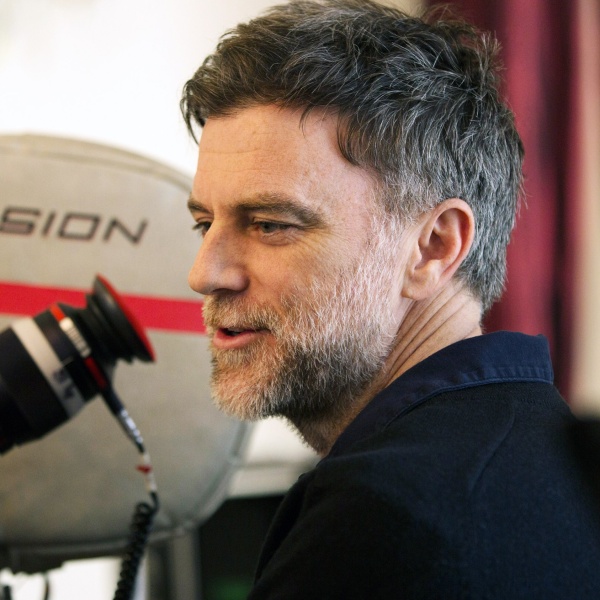Leos Carax‘s ability to create some of the most striking and memorable images in modern cinema is beyond question, but his reasons for stringing those images together are often murkier. The idiosyncratic auteur is closer to an abstract artist than a conventional storyteller — a trade-off that has added far more to his career than it has subtracted. That tension fueled his magnum opus “Holy Motors,” which follows a man whose inexplicable need to create and perform prompts him to spend his days cycling through an endless roster of clients who ask him to don different disguises. It’s also what made him the ideal director-for-hire for the beautifully incoherent Sparks brothers musical “Annette.” And it’s why one could argue that his style is better suited to museums than traditional filmmaking.
The Centre Pompidou apparently thought so when it commissioned Carax to make a short film that used images to answer the question “Who Are You, Leos Carax?” The director’s attempt to engage with the prompt became “It’s Not Me,” a video essay the title of which encapsulates its stubborn refusal to answer the question that birthed it. The finished product is many things — a retrospective that glides through Carax’s existing filmography, an homage to late-career Godard projects like “The Image Book,” and an unpredictable visual experiment from an artist who has always excelled at experimenting visually. But most of all, it’s proof that Carax is still preoccupied by the question at the center of “Holy Motors”: Why does he keep obsessing over cinema and making the strange images that fill his movies? Turns out, he hasn’t come any closer to an answer.
The 40-minute video essay sees Carax stringing together shots from his previous films alongside black-and-white clips from Old Hollywood, historical footage like the 1939 Nazi rally at Madison Square Garden, and a few new shots that see him catching up with old characters like the sewer leprechaun from “Holy Motors.” The montage skips between topics ranging from the rise of hateful authoritarians around the world and Carax’s shortcomings as a father to the Hitchcock films that sparked his lifelong fascination with POV shots. Carax uses his own narration and textual overlays to regale his viewers with every thought that pops into his head, from existential fears to playful quips like “of all the colics, spare me the melancholic.” It all feels like something a nonagenarian Godard would have cut together long before Carax makes the reference explicit by playing a voicemail that the “Breathless” director once left him.
A project as loose and self-indulgent as “It’s Not Me” is only worthwhile when it comes from an artist whose brilliance and significance are so firmly etched into history that anything they feel like producing becomes a relic worthy of study. Godard’s membership in that club was undeniable, but there’s more room for disagreement about whether Carax breathes such rarified air. The extent to which “It’s Not Me” will resonate with a particular viewer likely depends on how worthy of examination they deem Carax’s psyche, but there’s no denying that it’s fueled by the singular vision of an artist who refuses to let his audience off easy.
“It’s Not Me” was originally intended to screen as part of a museum installation that never materialized, a fact that should only add to the film’s mystique. Despite the simple question at the film’s core, Carax is unsurprisingly more interested in assembling compelling images and sounds than offering a sincere look inside the man crafting them. He orbits vulnerability like a moth swirling around a streetlamp, getting ever closer and occasionally touching it before instantly recoiling. His deepest moments come when he searches for the origins of his own obsession with cinema, probing his psyche for an explanation for why he continues to romanticize a medium that he’s spent a career insisting is dying a slow death. He muses about his fascination with massive cameras being pushed around by grips, and regrettably points out that small digital rigs will never emit the same distinguished aura. His rhetorical riffs point toward a visceral obsession with images that even he can’t quite understand. Just like Denis Lavant’s Mr. Oscar in “Holy Motors,” he just keeps getting back in that limo because he has no other choice.
Grade: B
“It’s Not Me” will debut with a live streaming premiere on the Criterion Channel on December 10 at 9pm ET alongside a limited theatrical engagement in New York and Los Angeles. It will be available to stream on Criterion Channel beginning on January 1.
Want to stay up to date on IndieWire’s film reviews and critical thoughts? Subscribe here to our newly launched newsletter, In Review by David Ehrlich, in which our Chief Film Critic and Head Reviews Editor rounds up the best reviews, streaming picks, and offers some new musings, all only available to subscribers.

